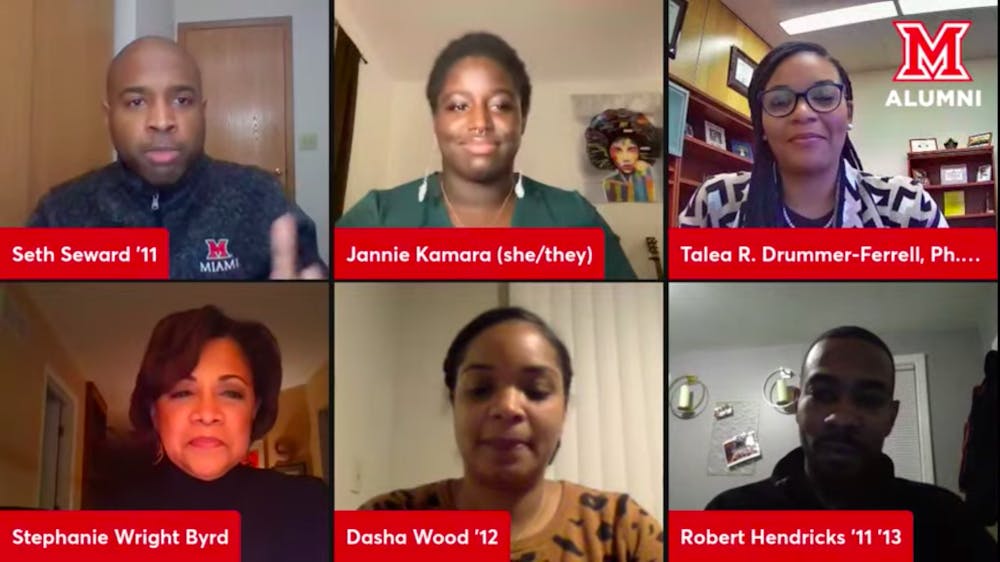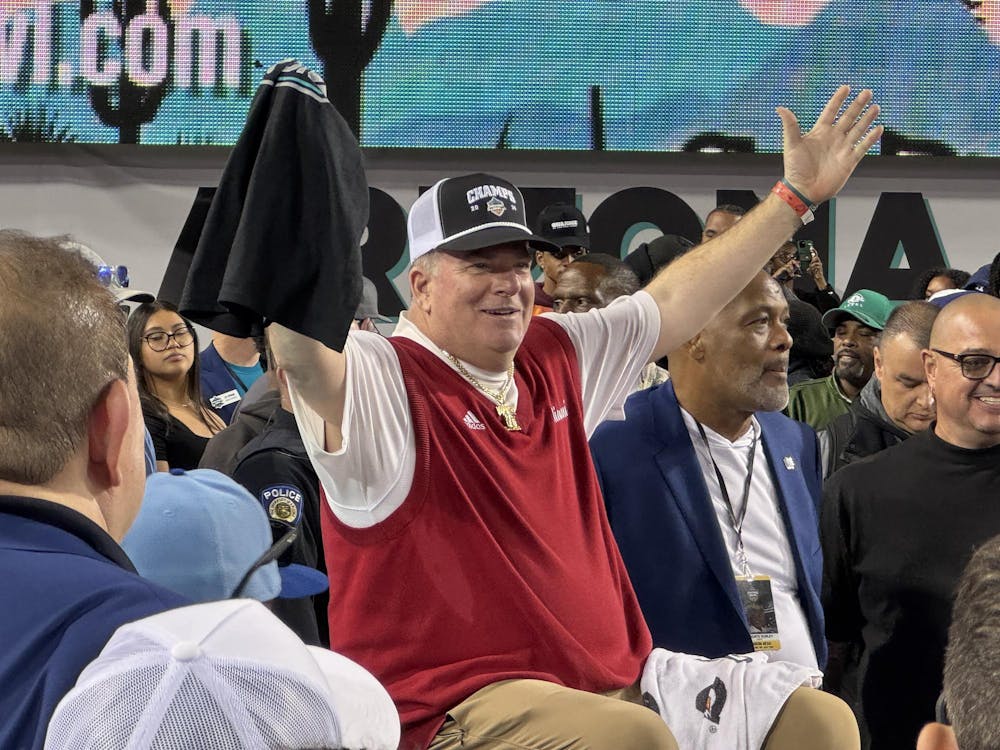The Miami University Alumni Association and the Center of Student Diversity and Inclusion (CSDI) held a virtual panel discussion with four Black alumni to discuss being the first in their career fields for Black History Month.
The panel was organized by Seth Seward, assistant director of Alumni Relations, and Dasha Wood, director of CSDI. It began with a message by Ronald Crutcher, a prior provost and executive vice president for Academic Affairs at Miami.
Crutcher was the first Black president at Wheaton College and the University of Richmond.
“Being the ‘first Black’ in any position I’ve been in is not something that I necessarily focus on,” Crutcher said. “What I do focus on, however, is the role that I might play in helping to change the culture of the institution of which I am a part of.”
The panel also highlighted the achievements of Stephanie Byrd, the first Black regional CEO for the American Red Cross for Central and Southern Ohio; Taléa Drummer-Ferrel, the first Black associate vice president for Student Affairs and Dean of Students at Kent State University; Robert Hendricks, the CEO and founder of He is Me Institute; and Miami alumna Jannie Kamara, a racial justice activist and Miami’s first Black woman Student Body President.
The panelists opened the discussion with challenges they’ve faced as pioneers in their fields.
“In each of the roles that I’ve had where I’ve been the first, there is a risk in that I would try and prove myself and do things that were intended to prove myself versus really focusing on what I know I can do, and what I can bring to the table,” Byrd said.
In light of Black History Month, the panelists also discussed being an ally to the Black community.
“I think one of the biggest ways [to be an ally] is continuing to be the voice and listening and learning,” Drummer-Ferrell said, “but then the other piece is to remove the mindset around colorblindness, and ‘I don’t see color.’”
For students attending the discussion, the panelists offered advice for young professionals.
“We oftentimes go into organizations being less willing to be open about our journey, what makes us who we are,” Byrd said, “but as young professionals and professionals in general, it’s our stories that really make us who we are, and it’s our opportunity to educate others about how our walk has created who we are and what we bring to the table without being apologetic for it.”
The panelists finished by discussing what it means to be a trailblazer. The panelists unanimously agreed that it was rewarding to be a first in their field, but it is long overdue.
Enjoy what you're reading?
Signup for our newsletter
“I want to see us in a place where they don’t have to call the folks in this conversation every time we want to do something in our fields around being successful,” Hendricks said. “It needs to be normalized. For lack of a better term, it’s not a big deal that you are a Black person in that role. You are just doing your work because you are a genius.”
The virtual program was recorded and can be viewed here.




